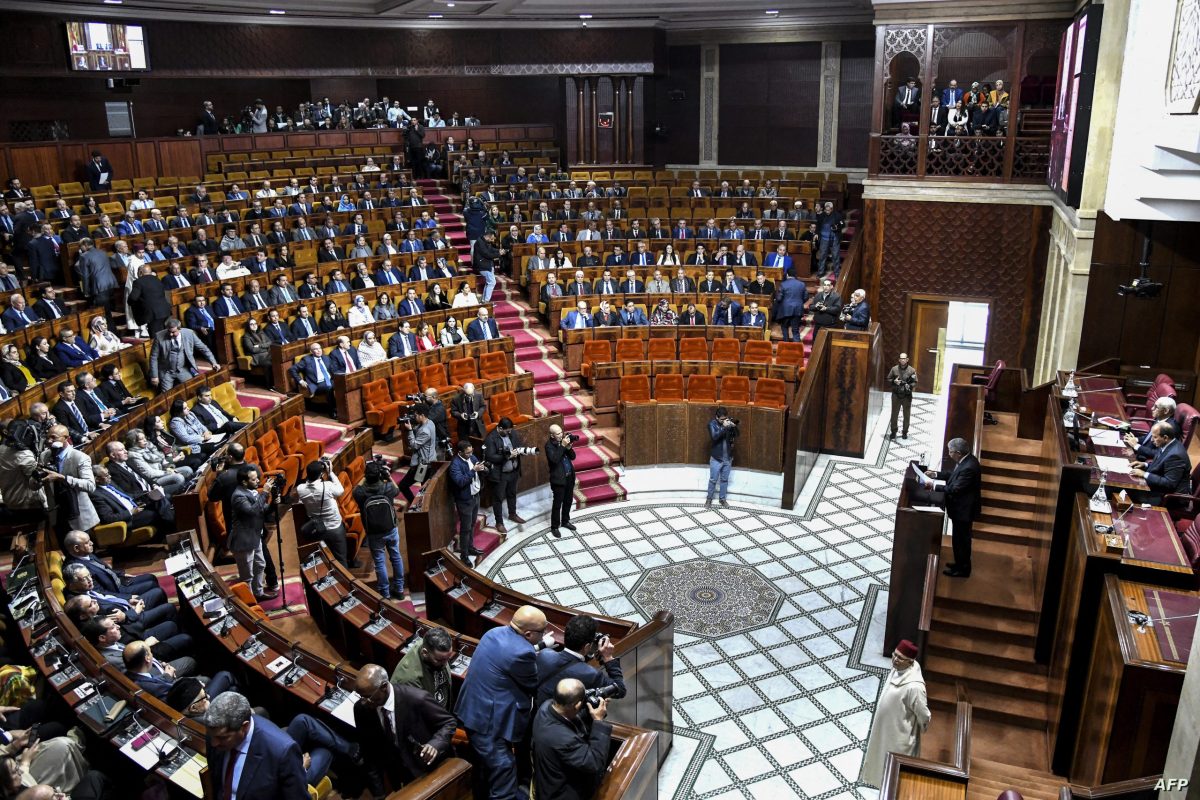[vc_row][vc_column][vc_column_text]
Heavy security presence on the streets, restricted transport movement, limited economic and social activities, internationally extremist narrative shifting to cyberspace and increasing media focus on health issues led to a decline in the dismantling of terrorist cells during the lockdown.
Download article
Introduction
No dismantling of a terrorist cell was announced by the Central Bureau of Judicial Investigation from March 20th, 2020, to June 20th, 2020. The former date marked the declaration of the state of health emergency in the wake of the COVID-19 outbreak, the latter the easing of lockdown measures. This is contrary to previous periods which saw a high rate of terrorist cell dismantling, at a rate of roughly one dismantling operation per month. This research seeks to clarify the relationship between the new security behavior during this period of time and the fight against terrorism at the national level. It will explain the factors leading to the temporary halt on terrorist cell dismantling operations.
Loosening the Concept of Terrorism in Light of the Epidemic
Anti-terrorism activities were markedly dormant nationally during lockdown spanning March 20th to June 20th, 2020. With the exception of limited and isolated cases[1], No press release on the dismantling of terrorist cells was issued by the Central Bureau of Judicial Investigation – up until the announcement of lockdown-easing measures in June 2020).
The state of emergency was an opportunity for loosening the concept of terrorism, as anti-terrorism tools were sometimes used to enforce health emergency measures[2]. This means that individual arrests of alleged extremists are in fact mostly coincidental, beginning with the arrest of violating the state of emergency regulations.
This was the case, for example, on April 9th, 2020, when the National Security General Directorate issued a press release stating that a policeman was forced to use his service weapon and fire bullets in Bejaâd to arrest a suspected extremist. The policeman was asking him for proof of identity since he was covering his face with a scarf. The suspect resisted and stabbed the policeman with a knife[3]. Thus, the arrest for violating health regulations turned into an arrest for premeditated murder and attempt to carry out an individual or collective public security threat. There was talk about a person holding extremist beliefs”. The police officer was promoted and rewarded “for his remarkable sacrifices and a great sense of professionalism.[4]”
This is similar to what happened in Salé in April, when a person violating the state of emergency was arrested by a joint patrol between the police and the local authorities. The person happened to be on the wanted list on terrorism charges. He was then transferred for investigation in Casablanca[5].
Sheikh “Abu Al-Na`im” was also arrested pursuant to the law on terrorism on 17 March. He is a Salafi sheikh who posted a video on social networks, criticizing the authorities’ closure of mosques. The latter was a prompt precautionary measure that the State took as part of restrictions on gatherings before the health emergency was declared. In this video, Abu Al-Na`im said that the virus did not pose an adequate risk that would warrant the closing of places of worship. Security services saw this statement as an incitement to violence and hatred, this narrative undermining public authorities’ efforts to combat the epidemic and compromising public order[6]. The authorities also arrested five persons in Fez on March 21, 2020, on suspicion of inciting disobedience, gathering and violating COVID-19 emergency health measures. The press release indicated that one of them had been previously convicted under the Terrorism Law and that another person had previously been found guilty of violent crimes affecting persons and property[7]. Referring to their criminal record was meant to clarify the link between breaching public health rules and violence. This applies to all of these arrests violating the state of emergency measures even if they were not directly related to terrorism. Violating these measures posed a threat to public order and security[8].
Continued international anti-terrorism coordination during COVID-19
Despite the decline in the pace of dismantling cells at the local level, Morocco’s international coordination activity remained almost the same. A Moroccan citizen was arrested in Barcelona on May 8, 2020, thanks to security cooperation with the General Directorate of Territorial Surveillance (DGST) and the FBI. In fact, the Spanish Civil Guard announced in a press release that this suspect had been on the watch list for at least four years, but the matter became alarming when the suspect had repeatedly violated lockdown restrictions. This caused security services to suspect that he had seen the pandemic in Spain as an opportunity to carry out a terrorist act[9]. Morocco provided important assistance during investigation. Another cell was also dismantled through cooperation between the two countries on May 20, 2020, in Spain[10].
Factors Leading to a Decline in the Dismantling of Terrorist Cells
The decline in terrorist cells during lockdown (March – June 2020) can be explained by five main factors:
-
Heavy security presence
Security efforts were more focused on enforcing the two decrees related to the state of health emergency and imposing public health rules. This led to an increase in security operations by the local authorities and police on city streets as well as by the local gendarmerie outside urban areas. This included many tactics, such as checkpoints, mobile patrols, and the creation of an information application in order to monitor Citizen movement[11].
This heavy presence and the massive crackdown on health emergency violators -106,553 people were arrested as of 31 May 2020[12]– as well as cyberspace arrests helped control the overall situation, limit circulation and impose lockdown. This limited terrorist acts in many forms. Security control held especially true in major cities, mostly main streets, while popular neighborhoods, alleys, and villages have sometimes remained little concerned by this tightening of security. However, ensuring security control and the presence of security forces caused panic among terrorist cell members, and necessary precautions were taken by temporarily halting coordination. Lower levels of security vigilance and preoccupation with COVID-19 issues led to attempts to take advantage of this loophole in many countries, especially since wearing mandatory medical masks helped hide identity[13].
-
Logistical aspects
The cessation of economic and trade activities, as well as travel bans between cities complicated coordination, travel and collective preparation for terrorist acts. This is especially since the cells that were periodically dismantled by the Central Bureau of Judicial Investigation were from different cities and regions[14]. The gradual lifting of the lockdown was approved on June 11th, 2020. The measures of the second phase of the plan on easing lockdown have been in effect since June 24th, 2020. It stipulated that regions be classified into two categories: Zone No.1 and Zone No.2[15]. Once security started easing as a result of gradual phasing out of health emergency measures and overall surveillance of citizen movements, some terrorist cells began to operate in the provinces of zone No.1, a zone enjoying more lenient measures compared to Zone No.2. On July 7th, 2020, a terrorist cell was dismantled by the Central Bureau of Judicial Investigation, the first of its kind since March before the declaration of the state of health emergency. This took place in Nador, in the Eastern Province, which enjoyed more relaxed measures[16].
Perhaps the most important terrorist cell dismantlement was the one that took place on September 10th, 2020; it was conducted simultaneously in four Moroccan cities: Temara, Skhirat, Tiflet and Tangiers. The logistical importance of this event is evident. This cell made significant strides in preparation. This is despite health emergency restrictions and despite the fact that one of these cities, Tangiers, is still under relative closures, as it belongs to zone No.2. Forensic investigation has revealed that the suspects managed to turn the apartments in which they were arrested into safe havens and an underground coordination base[17].
Judging from the statement of Abdelhak El-Khayam, Director of the Central Bureau of Judicial Investigation, it is clear that the cell is self-financed and that the seized chemicals are, in fact, legally available and generally sold materials[18]. These chemicals are capable of fabricating destructive explosive devices, according to the head of the Forensic Science Institute at the National Security General Directorate[19].
-
Absence of Target Sites
The closure measures helped to undermine the chances of carrying out terrorist acts in terms of the absence of large-scale and complex attacks. This is in light of halting the activities of tourism, restaurants, hotels, and even churches and synagogues[20], the historical targets of terrorist acts in Morocco: the 1994 bombing of the Atlas Asni Hotel in Marrakech, the 2003-Casablanca events, the 2007 events, the 2011 Argana café bombing in Marrakech, and the 2018 Imlil attack. In the absence of large crowds, foreigner gatherings, entertainment events, nightclubs, closure of symbolic public places, and imposing of physical distancing measures that make tactics such as stabbing and vehicle run-overs less efficient, it was therefore not likely that terrorist cells would resume their activities during these circumstances. This is especially true because Morocco does not have terrorist organizations and organized and cohesive networks like some other Arab countries.
-
Media coverage during COVID-19
National media coverage during health emergency has largely highlighted the issues of COVID-19[21], overshadowing other topics. This is a factor deterring terrorists from taking the initiative. The aim of carrying out terrorist attacks is not to kill a large number of victims, but to cause all-out panic and hold the media spotlight. Although the United Nations announced a global ceasefire, to which some terrorist organizations responded, there are other entities that took advantage of this loophole to escalate their attacks, especially in Africa and Asia. Only from March to June 2020, there were about 90 terrorist acts. These also include right-wing extremism and lone-wolf attacks in Europe and the United States. During this period, most of these actions did not receive the same amount of discussion as was the case in the past due to the great interest in health pandemic-related issues. This was the case, for example, of the attacks in France in April 2020[22].
-
Continuing Extremist Cyber Ideology
The global terrorism context during Covid-19 entailed an adaptation of extremist rhetoric and a growing preference towards the Internet as a refuge. This is especially relevant since many groups, mainly minors, are homeschooled and have more access to the Internet. Thus, most individual arrests that took place during Covid-19 under the law on terrorism in Morocco were in fact linked to the Internet. Networks such as Telegram) are still used by jihadists for communication and coordination. In addition to the previous cases, members of the local police division in M’rirt in the province of Beni Mellal-Khenifra, arrested, on June 29, 2020, two people on charges of extolling terrorism and inciting crimes against the person through social media[23].
Summary
The imposition of public health rules by security services in Morocco during the first phase of the state of health emergency has resulted in the accidental arrest of a number of individuals on extremism and terrorism charges. However, these arrests were by no means related to organized terrorist networks and cells, but rather to individual indirect cases. In contrast, the pace of international coordination in Morocco with partners, such as Spain, has remained relatively stable. Heavy security on the streets, restricted transport movements, limited economic and social activities, as well as internationally extremist narrative shifting to cyberspace and increasing media focus on health issues and its disregard for terrorist events temporarily curbed terrorist coordination. The latter soon resumed after the lockdown was lifted and easing measures began.
Endnotes
[1] Such as arresting a university student enrolled in Marrakech on 19 Mai on grounds that he held extremist beliefs in the province of Sraghna. This was in collaboration with the local gendarmerie and local authorities on information provided by the General Directorate for Territorial Surveillance. For more information: “An extremist Student Arrested by the National Unit, Baouarky, 19 Mai 2020, accessible at http://www.sraghna-online.com/?p=
[2] In the US for instance, anti-terrorism laws and tools were applied to handle certain COVID-19 aspects. A memo issued by the Department of Justice on 24 March 2020 laid federal terrorism charges against those threatening to deliberately spread the virus. As such, the Attorney-General said that the scope of application and definitions of terrorism are not only used for political and ideological reasons but also for enforcing order and regulations imposed during the pandemic.
Pete Williams. Coronavirus crimes can be charged as acts of terrorism, Justice Department says. NBC news )March 25, 2020(.
[3] أبي الجعد.. عناصر الأمن تضطر لاستخدام أسلحتها الوظيفية لتوقيف شخص يشتبه في خرقه لحالة الطوارئ الصحية ومحاولة القتل العمد (Abi Al-Jaad : Police Officers Forced to Use Service Weapons to Arrest a Person Alleged with Violating Lockdown and Murder, Maghreb Arab Press, April 9, 2020, accessible at: https://www.mapnews.ma/ar/actualites/%D8%A3%D8%AE%D8%A8%D8%A7%D8%B1-%D8%B9%D8%A7%D9%85%D8%A9/%D8%A3%D8%A8%D9%8A-%D8%A7%D9%84%D8%AC%D8%B9%D8%AF-%D8%B9%D9%86%D8%A7%D8%B5%D8%B1-%D8%A7%D9%84%D8%A3%D9%85%D9%86-%D8%AA%D8%B6%D8%B7%D8%B1-%D9%84%D8%A7%D8%B3%D8%AA%D8%AE%D8%AF%D8%A7%D9%85-%D8%A3%D8%B3%D9%84%D8%AD%D8%AA%D9%87%D8%A7-%D8%A7%D9%84%D9%88%D8%B8%D9%8A%D9%81%D9%8A%D8%A9-%D9%84%D8%AA%D9%88%D9%82%D9%8A%D9%81-%D8%B4%D8%AE%D8%B5-
[4] تطبيق حالة الطوارئ الصحية .. منح ترقية استثنائية لمقدم شرطة تعرض لاعتداء جسدي خطير من طرف شخص متشبع بالأفكار المتطرفة. Enforcing Health Emergency : Promoting a Police Lieutenant Gravely Assaulted by an Extremist), Maghreb Arab Press, 15 April 2020, accessible at: https://www.mapnews.ma/ar/actualites/%D8%A3%D8%AE%D8%A8%D8%A7%D8%B1-%D8%B9%D8%A7%D9%85%D8%A9/%D8%AA%D8%B7%D8%A8%D9%8A%D9%82-%D8%AD%D8%A7%D9%84%D8%A9-%D8%A7%D9%84%D8%B7%D9%88%D8%A7%D8%B1%D8%A6-%D8%A7%D9%84%D8%B5%D8%AD%D9%8A%D8%A9-%D9%85%D9%86%D8%AD-%D8%AA%D8%B1%D9%82%D9%8A%D8%A9-%D8%A7%D8%B3%D8%AA%D8%AB%D9%86%D8%A7%D8%A6%D9%8A%D8%A9-%D9%84%D9%85%D9%82%D8%AF%D9%85-%D8%B4%D8%B1%D8%B7%D8%A9-%D8%AA%D8%B9%D8%B1%D8%B6-%D9%84%D8%A7%D8%B9%D8%AA%D8%AF%D8%A7%D8%A1-%D8%AC%D8%B3%D8%AF%D9%8A
[5] الأمن ينقل “متطرف أبي الجعد” إلى مشفى بالرباط (Police Transfers Bejaâd Extremist to a Hospital in Rabat), Hespress, April 9 200, accessible at: https://www.hespress.com/faits-divers/467311.html
[6] Press release of the National Security General Directorate, 17 March, 2020, https://twitter.com/DGSN_MAROC/status/1239934337740681217/photo/1
[7] فاس .. توقيف خمسة أشخاص يشتبه تورطهم في التحريض على التجمهر وتعريض حياة المواطنين للخطر من خلال خرق إجراءات الطوارئ الصحية (Fez : Five Persons Arrested Alleged with Inciting People to Assemble and Threatening their Lives while Violating Health Emergency Measures), Maghreb Arab Press, 23 March, 2020, http://www.mapexpress.ma/ar/actualite/%d9%81%d8%a7%d8%b3-%d8%aa%d9%88%d9%82%d9%8a%d9%81-%d8%ae%d9%85%d8%b3%d8%a9-%d8%a3%d8%b4%d8%ae%d8%a7%d8%b5-%d9%8a%d8%b4%d8%aa%d8%a8%d9%87-%d8%aa%d9%88%d8%b1%d8%b7%d9%87%d9%85-%d9%81%d9%8a-%d8%a7/%d9%85%d8%ac%d8%aa%d9%85%d8%b9-%d9%88%d8%ac%d9%87%d8%a7%d8%aa/
[8] طنجة..توقيف شخصين للاشتباه في تورطهما في التحريض على التجمهر والعصيان وتعريض حياة الأشخاص للخطر (Tangiers : Arrested Two Persons Alleged with Inciting People to Assemble, Disobedience and Endangering People’s Lives), Maghreb Arab Press, 22 March, 2020), accessible at: http://www.mapexpress.ma/ar/actualite/%d8%b7%d9%86%d8%ac%d8%a9-%d8%aa%d9%88%d9%82%d9%8a%d9%81-%d8%b4%d8%ae%d8%b5%d9%8a%d9%86-%d9%84%d9%84%d8%a7%d8%b4%d8%aa%d8%a8%d8%a7%d9%87-%d9%81%d9%8a-%d8%aa%d9%88%d8%b1%d8%b7%d9%87%d9%85%d8%a7-%d9%81-2/%d9%85%d8%ac%d8%aa%d9%85%d8%b9-%d9%88%d8%ac%d9%87%d8%a7%d8%aa/
[9] Keeley, Graham. Spanish police and FBI foil suspected radical Islamic terror plot to attack Barcelona. Fox news. (May 8 2020).
https://www.foxnews.com/world/spanish-police-fbi-radical-islamic-terror-plot-barcelona
[10] Spanish & Moroccan police bust terror cell led by Moroccan jihadist. The north Africa post (may 21, 2020).
[11] Police Gazette, Issue «36, the National Security General Directorate, June 2020, P.32-33.
[12] IBID, P.34.
[13] Harley, Nicky. Europe’s most wanted ISIS terrorist used coronavirus masks to hide. (April 21, 2020).
[14] For instance, a terrorist cell operating in Casablanca, Mohamadia and Azilal had been dismantled roughly one month before declaring health emergency:
بلاغ لوزارة الداخلية: تفكيك خلية إرهابية تتكون من 6 عناصر يتبنون الفكر المتطرف، ينشطون بين الدار البيضاء والمحمدية وأزيلال. (Press Release of the Ministry of Interior: Dismantling of a Terrorist Cell six Extremists operating in Casablanca, Mohamadia and Azilal), Maghreb Arab Press, 4 February, http://www.mapexpress.ma/ar/actualite/%d8%aa%d9%81%d9%83%d9%8a%d9%83-%d8%ae%d9%84%d9%8a%d8%a9-%d8%a5%d8%b1%d9%87%d8%a7%d8%a8%d9%8a%d8%a9-%d8%aa%d8%aa%d9%83%d9%88%d9%86-%d9%85%d9%86-6-%d8%b9%d9%86%d8%a7%d8%b5%d8%b1-%d9%8a%d8%aa%d8%a8%d9%86/%d9%85%d8%ac%d8%aa%d9%85%d8%b9-%d9%88%d8%ac%d9%87%d8%a7%d8%aa/
[15] إقرار مجموعة من الإجراءات والتدابير لتأطير المرحلة الثانية من “مخطط تخفيف الحجر الصحي” ابتداء من 24 يونيو/ حزيران 2020 عند منتصف الليل (Various Measures and Procedures for rolling out Phase II of the Plan on Easing Lockdown to Enter into Effect on 24 June by Midnight), Maghreb Arab Press, 21 June 2020, accessible at:
[16] The press relase indicated the main characteristics of the greater majority of dismantled cells, such as affiliation with Jihadists, contact with dismantled terrorist cells, allegiance to ISIS and decision to carry out a terrorist attack targeting sensitive sites in the Kingdom.
تفكيك خلية إرهابية بالناظور والضواحي تتكون من أربعة عناصر من بينهم شقيق أحد المقاتلين في صفوف “داعش » (Dismantling a Terrorist Cell in Nador and the Suburbs Comprising four persons, Including the Brother of an ISIS Combatant), Maghreb Arab Press, 7 July 2020, accessible at:
[17] المكتب المركزي للأبحاث القضائية يتمكن من تفكيك خلية إرهابية لها ارتباطات في عدة مدن مغربي (The Central Bureau of Judicial Investigation Dismantles a Terrorist Cell Linked to Many Cities in Morocco), Maghreb Arab Press, 10 September 2020, accessible at:
[18] (عبد الحق الخيام: الخلية الموقوفة كانت تعد لعمليات انتحارية على غرار “16 ماي Abdelhak Al-Khayam : The Intercepted Cell was Preparing for 16-May-Like Suicide Attacks), Al-Yaoum 24, 11 September 2020, https://www.alyaoum24.com/1457305.html
[19] عبد الحق الخيام: الخلية الإرهابية المفككة كانت مستعدة لتنفيذ عمليات إرهابية انتحارية خطيرة (Abdelhak Al-Khayam : The Dismantled Cell was Braced for Carrying out Dangerous Suicidal Terrorist Attacks), Maghreb Arab Press, 11 September 2020, accessible at:
[20] Terrorism in Times of Corona: The development of the terrorist threat as a result of the Covid-19 crisis. Council of the European Union. 7838/1/20 REV 1. Brussels, 14 May 2020. P8.
[21] التعبئة الوطنية للحد من تفشي فيروس كورونا المستجد كوفيد – 19: تقرير تركيبي عن إسهام الخدمات الإذاعية والتلفازية المغربية (National COVID-19 Mobilization : Synthèses Report on Moroccan Radio Stations’ and TV Channels’ Contributions, The High Authority for Audiovisual Communication, April 2020 : https://www.haca.ma/sites/default/files/upload/Rapport%20Services%20audiovisuels%20Coronavirus%2009%20avril%202020%20%282%29.pdf
[22] Davis, Jessica. Terrorism during a Pandemic: Assessing the Threat and Balancing the Hype. Just security (April 28, 2020).
[23] “الإشادة بالإرهاب” تورط شخصين بمدينة مريرت (Extolling Terrorism : Two Persons Accused in Meririt), Hespress, «1 September 2020, accessible at : https://www.hespress.com/faits-divers/476633.html[/vc_column_text][/vc_column][/vc_row]
Maha Ghazi
Maha is a fellow at the International Center for the Study of Violent Extremism (ICSVE), based in Washington, DC. She is preparing a Ph.D. in international and political studies at Mohammed V University in Rabat. She does research and fieldwork on issues of de-radicalization, disengagement and reintegration of ex-prisoners of terrorism cases and returning from hotbeds of tension.


